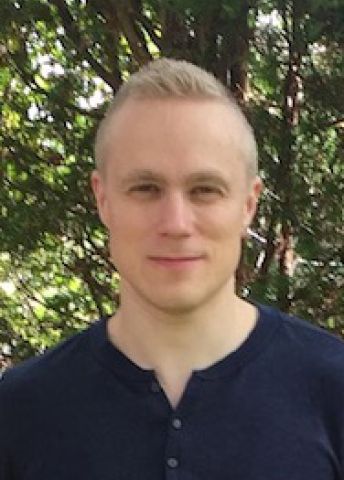
Program for mathematics 2022
Visting Professor
Associate professor Matthew Kennedy
University of Waterloo, Canada
Nominated by:
Stockholm University
Visting Professor
Associate professor Matthew Kennedy
University of Waterloo, Canada
Nominated by:
Stockholm University
Two modern theories in a productive cooperation
Matthew Kennedy is an associate professor at the University of Waterloo, Canada. Thanks to a grant from the Knut and Alice Wallenberg Foundation, he will be a visiting professor at the Department of Mathematics, Stockholm University.
Geometric objects and their symmetries have been studied since the ancient Greeks. Eventually, there was a move away from the objects themselves and studies of symmetry became increasingly abstract. Different symmetries were placed in different groups and, in the early 19th century, the famous French mathematician Évariste Galois developed group theory.
The concept of groups is now central to both mathematics and modern physics, with many new methods for dealing with groups being introduced over the past century. One of these is operator algebras, which was developed in the 1930s to provide the newly created quantum mechanics with a solid mathematical basis. An entirely different way of studying groups is by using boundary theory, which was created in the 1960s to study their large-scale behaviour.
A revolutionary insight about how to link these two relatively new areas of mathematics has led to several breakthroughs over the last decade. Boundary theory has become a fundamental tool for operator algebras, and vice-versa – several important problems in boundary theory have been illuminated by using operator algebras. The aim of the planned project is to further develop these methods and use ideas from operator algebras to investigate current problems in boundary theory for groups.
Matthew Kennedy is a world-leading researcher in operator algebras. He works at the University of Waterloo in Canada, which hosts the closely related multidisciplinary Institute for Quantum Computing. At the institute theoretical research is combined with quantum information theory and other areas of importance for future quantum computers, including operator algebras.